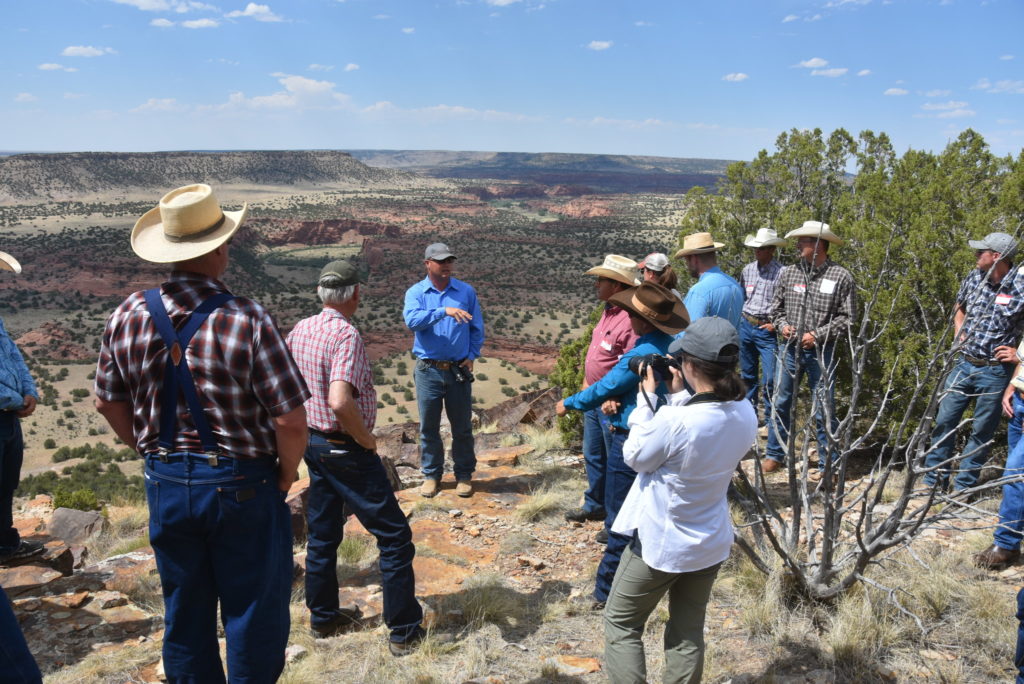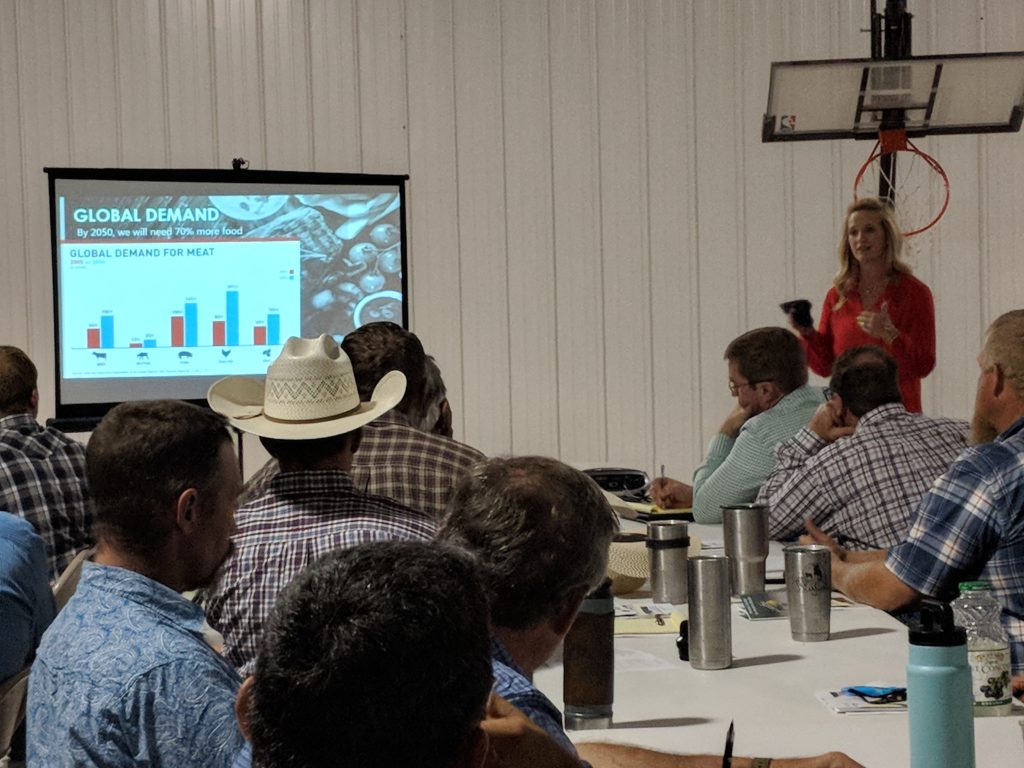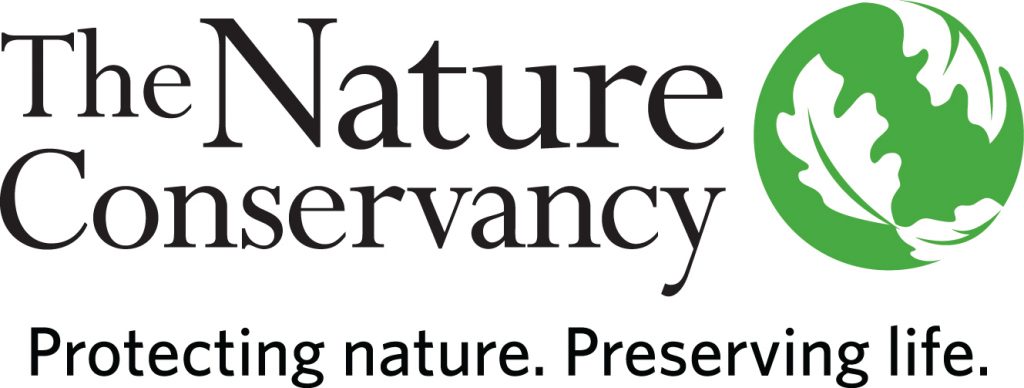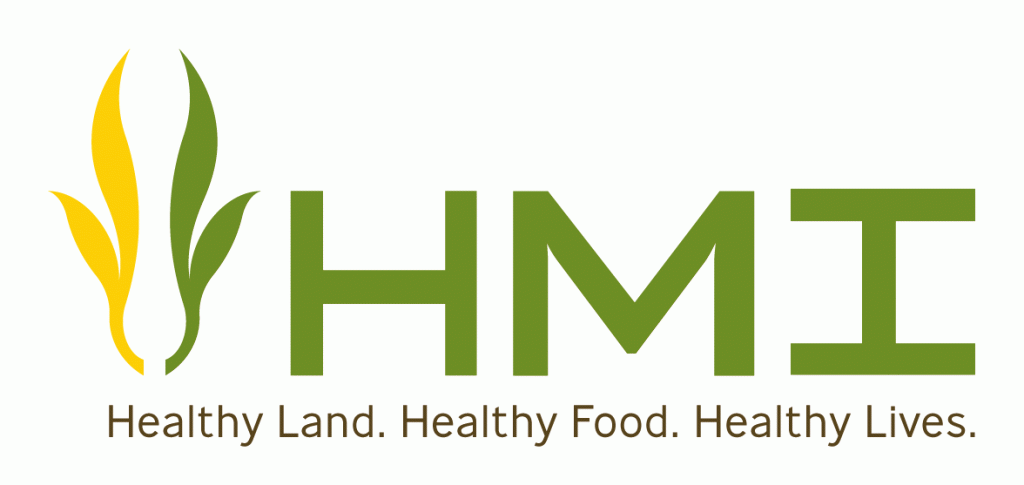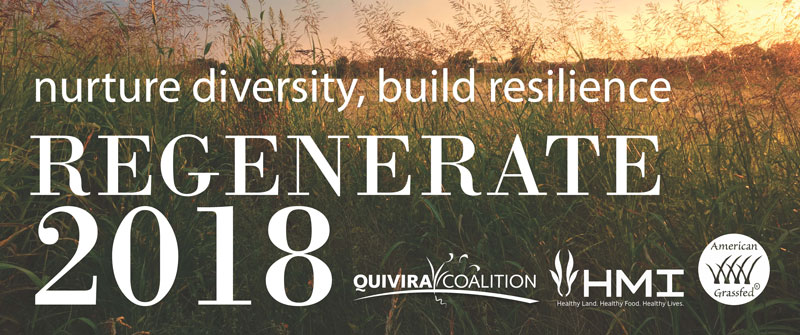by Kathy Harris, HMI's Director of Programs
Sixty participants braved the record heat and a long drive down ranch roads to get to the majestic landscape of JE Canyon Ranch for the first workshop jointly presented by The Nature Conservancy (TNC) and Holistic Management International (HMI). This group of mostly ranchers and some area ag resource agents manage or influence the management of more than 1.5 million acres, and they didn't let triple digit temperatures or the afternoon thunderstorms stop them from coming back for a second day!
JJ Autry, TNC's Southeast Colorado Project Director and long-time resident of the area, told about the history of the ranch and how his work with The Nature Conservancy has allowed him to work with Beatty Canyon Ranch, which leases the grazing operation at JE Canyon, to tests ideas, try new things, and have the benefit of the research that TNC provides to improve both conservation and ranching outcomes.
Steve Wooten from Beatty Canyon Ranch shared his experiences as JE Canyon grazing lessee and then how he came to be involved in developing sustainability indicators an d metrics for the US Roundtable for Sustainable Beef (USRSB), where he serves on the board of directors. He spoke about the relevance he sees the USRSB has for both producers and retailers, and the learning and "give and take" that happened as part of the development of its draft beef Sustainability Framework.
Kim Stackhouse-Lawson, Director of Sustainability for JBS USA and USRSB Board President, then gave a fascinating presentation on the growing global demand for beef and the unique marketing challenges of today with the needs of Millennials to develop trust and their expectation that retailers share their values. She also provided an overview of the USRSB's draft Sustainability Framework, putting it in the context of the beef retail paradigm changing to one of "transparency" and explaining why the Assurance Framework is critical to the future of the beef sector.

William Burnidge, TNC's Colorado Director of Sustainable Grazing Lands, shared the "grazing sustainability scorecard" TNC developed to help evaluate how well they are supporting continuous improvement of business, ecological, and social outcomes on the ranches where they are engaged. He also explained how the scorecard related to the USRSB͛s Sustainability Assurance Framework and that TNC hopes the tool could be useful to producers in that context.
Chris Pague, Senior Conservation Ecologist with TNC, shared results from research projects at JE Canyon Ranch on Pinion-Juniper mapping, use of planned/prescribed burns, bighorn sheep studies, and archeological studies before leading a field tour to representative sites that wowed participants with the beauty and expansiveness of the ranch.
Kathy Harris finished the day by sharing how Holistic Management can help ranchers achieve desired business, ecological, and quality of life outcomes with some examples from JE Canyon Ranch and her own experience.
The second day was a typical HMI Open Gate field day facilitated by HMI Professional Certified Educator, Kirk Gadzia. Most of the morning was spent out in the field on forage assessment and discussion of grazing impact. The afternoon focused on using PastureMap to plan, document, and monitor herd movement and pasture utilization. Kirk also reviewed biological monitoring with an overview of the Bullseye method.
Special guests Louis Martin of Round River Resource Management and Will Johnson from Flying Diamond Ranch each shared the work they have been doing at their respective ranches. The joint workshop was successful overall, and HMI and TNC are excited to explore how they can continue to collaborate to build on the experience and bring more value to participants in future events.
Results include:
A reported knowledge change of :
USRSB proposed framework of 79%
TNC's scorecard of 79%
PastureMap of 72%
Overall, there was a 97% satisfaction with the workshop. Of those who indicated plans to change management practices, the planned changes revolved around learning or applying more about Holistic Management principles -- either general principles, specifically regarding grazing management and forage assessment, or using PastureMap to help with grazing management. A full 100% of respondents reported that they expanded their network, and 76% want more information about further education or resources.
Future topics requested include:
"Summary articles on lessons learned at JE Canyon; results/findings from past research; more examples of what͛s being done on the ranch"
"More info on high stock density grazing; more practice with ADAs, range monitoring"
"Hands-on examples of monitoring tools and methods"
"More about TNC͛s scorecard"
"More from local producers; case studies in successful/unsuccessful experiments"
"Water development, Hydrology"
"HMI courses and a suggested order in which to take them"
"More information about pasture map and its involvement internationally"
Thank you to our generous funders of this program:
Martha Records and Rich Rainaldi
This unique workshop is brought to you by a collaboration between:
Thanks to these organizations for providing speakers and outreach assistance:
Flying Diamond Ranch
Join us for our 2018 Regenerate Conference Nurture Diversity, Build Resilience Hotel Albuquerque, Albuquerque, New Mexico October 31 – Nov 2, 2018 with optional Regenerative Grazing Workshop on Nov 3, 2018 Click here for more information.
(Optional special events run from October 29 - November 3, 2018.)

